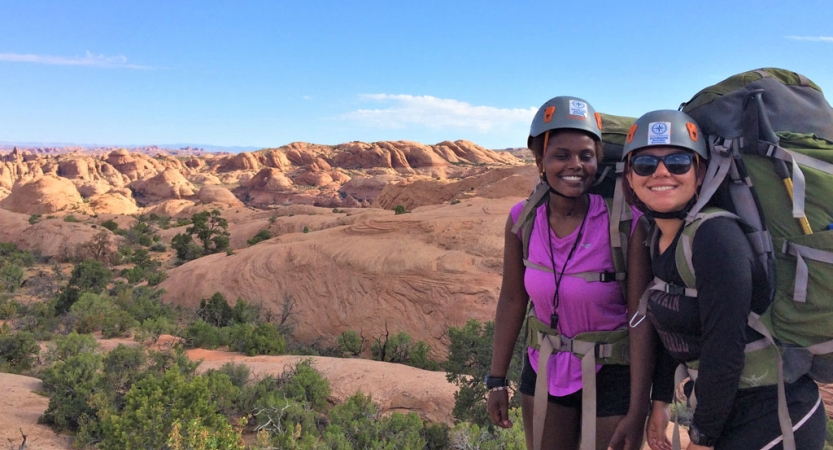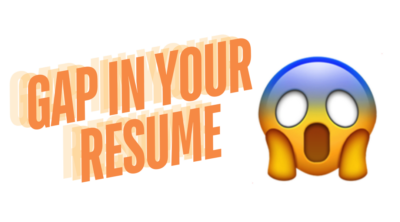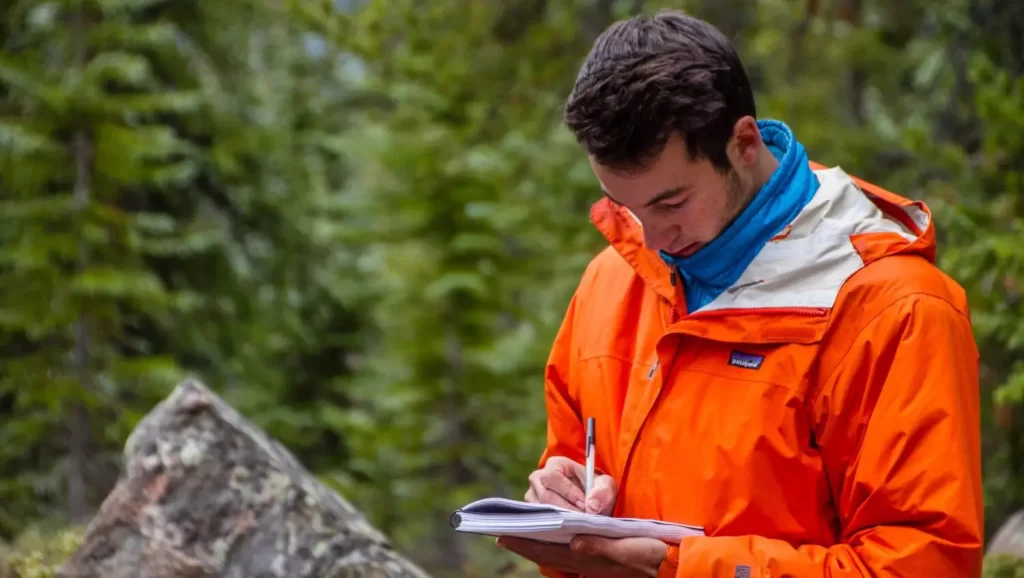
Those students who pursue intentional gap year experiences often cite their gap time as incredibly transformative, full of skill building and personal growth. It is also a common concern that a gap year might be perceived as “time off” or a “break from productivity” that appears as a dreaded…

We’re here to tell you the opposite: intentional gap years are often FULL of productivity and growth relevant to professional opportunities—it’s often a simple matter of:
Thoughtful reflection
Framing the experience for optimal relevance
Let’s first address any readers who are currently planning for, or in the midst of, a gap year experience: we HIGHLY recommend keeping a journal during your gap year journey. There are many reasons why keeping a gap year journal is a great idea (see “The Importance of Journaling on Your Gap Year”), not least of which is that it can help you continue to make sense of your experiences long after they’ve concluded, and will be a valuable source of reflective material as you try to distill your gap time into distinct skills and qualities appropriate for a professional resume.

Whether or not you keep a journal during your gap year, here are some tips for framing your gap year experience and outcomes on a professional resume:
BEFORE YOU DRAFT ANY ADDITIONS TO YOUR RESUME, MAKE A COMPREHENSIVE LIST OF Hard and SOFT SKILLS GAINED DURING YOUR GAP YEAR.
What are hard and soft skills? HARD SKILLS generally refer to specific technical knowledge or training, usually gained through hands-on experience or education. SOFT SKILLS, on the other hand, refer to personal qualities and traits that will affect how you work—both alone and with others—and how you will contribute to a work culture and environment. Following are some common examples of hard and soft skills that gap year students might cultivate:
HARD SKILLS
- Language learning – Proficiency in a second or third language is a highly sought-after skillset among many employers!
- Cultural competence – Familiarity with different cultural practices, customs, etc. demonstrates your ability to navigate diverse/international work settings.
- Technical skills related to outdoor travel: Backcountry navigation, high angle rescue, swift water rescue, gear management, etc.
- First Aid/First Responder certifications – Health and safety training will be a valuable addition to a number of different workplaces
- Technology competence – Did you document aspects of your gap year journey through blogging, vlogging, photography, web design, etc.? Make a list of the skills you’ve practiced with different platforms/software/applications.
- Farming/agriculture – Document experiences you gained in different aspects of food production and distribution.
SOFT SKILLS
- Leadership – Many gap year experiences offer students chances to step into leadership roles, allowing them to explore and get to know their own leadership styles better. Being able to articulate your particular leadership style based on actual experiences will come in handy when trying to assess how you will fit in and contribute to different teams and work environments.
- Communication – Experiences in a range of different cultures and environments will help you develop stronger verbal and non-verbal communication skills.
- Teamwork – Participating in cohort-based programs and/or other types of group activities can help you understand how to contribute to positive group dynamics and team-oriented goals.
- Adaptability – Gap years often allow students to practice responding to unforseen events and unexpected changes in their plans. Employers will appreciate seeing your ability to gracefully respond to new people, environments, and plans, and to continue performing well under changing circumstances.
- Willingness to Learn – Gap year experiences embody a spirit of lifelong learning, often demonstrating a strong commitment to continued learning and personal growth. An excitement for continuing education will be an asset to many workplaces.
- Open-mindedness – Gap year experiences offer many opportunities to navigate different cultures, worldviews, and social/professional contexts. Think about aspects of your gap year experience that demonstrate your ability to truly listen to others, to celebrate differences, and to approach situations with curiosity and an excitement for learning.
>> Keep this initial skills list comprehensive, but simple (i.e., leave out the long explanations weʻve included here). This list will be a helpful toolkit to pull from as you tailor your resume for different applications.

Think about what each POSITION has asked for
Resist the temptation to save time with a one-size-fits-all resume! Pay close attention to the specific qualifications desired for each position, and draft a resume that speaks directly to those qualifications. Potential employers can tell when they get a cookie-cutter application that isnʻt tailored to what theyʻve asked for.
This doesnʻt mean you have to leave out important gap year experiences altogether. Rather, it often means you have to think carefully about framing.
For example, letʻs say you spent part of your gap year participating in an outdoor leadership mountaineering course:
- If youʻre now applying for a job as a hiking guide: Youʻll clearly want to talk about all of the hard skills (outdoor competence, wilderness first aid, experience crossing difficult terrain, etc.) gained during your mountaineering program. In this scenario, your gap experience has given you direct training for a specific professional pursuit.
- If youʻre applying for a project coordinator position with a tech start-up: Your rope management and high-angle rescue experience wonʻt seem like relevant skillsets to report, and you might feel tempted to omit the experience from your resume entirely. HOWEVER, your mountaineering course likely gave you an opportunity to practice and hone many soft skills—team building, effective group communication, collective problem-solving, etc.—that speak to your ability to be an effective communicator and perform well in team environments…even if the environment is an office, rather than an alpine ridgeline.

KEEP IT SIMPLE
Remember that on average, hiring managers and recruiters will look at a resume for 6-7 seconds. Make those seconds count!
- Avoid long explanations of each skill/experience. Name each skill/experience clearly and concisely on your resume, then save the relevant explanations for your cover letter.
- Use strong action words and specific metrics wherever possible. Avoid passive voice and vague language.
- Consider adding a “career snapshot” at the start of your resume that quickly summarizes your experiences. How would you describe your professional experiences in a single sentence? Remember, youʻve gained many professional skillsets during your gap year, even if you werenʻt technically employed during that time.
>> Organization can go a long way in simplifying your resumeʻs look. Think about section headings that will help you organize your skills and experiences: Education, Work Experience, Volunteer Work, Continuing Education/Courses, Certifications, Skills, etc.

PROOFREAD!!!
Last, but not least: please, please, please proofread your application materials before submitting them. Double check spelling, grammar, punctuation, and formatting. Youʻll only get one first impression, and a clean, error-free resume can go a long way in presenting yourself as a professional with careful attention to detail.
In CONLUSION
Intentional gap years are overflowing with valuable examples of personal, professional, and educational development. In many ways, gap year alumni are often more prepared to enter the workforce than peers who went directly to college after high school. With the right approach, you can stand out in a crowd of other candidates by highlighting your gap year experiences on your resume.
Categories
- Advising (7)
- Alumni (2)
- Career (5)
- College & University (15)
- Communication (17)
- DEIA (4)
- Fair Trade Learning (3)
- Finances (12)
- Gap Year Benefits (69)
- Growth & Development (9)
- Leadership (6)
- Learning & Reflection (56)
- Mental Health (4)
- Planning (61)
- Professional Development (5)
- Research (4)
- Risk Management (3)
- Safety (5)
- Service-Learning (10)
- Standards & Accreditation (1)
- Sustainability (6)
- Voices Project (20)
